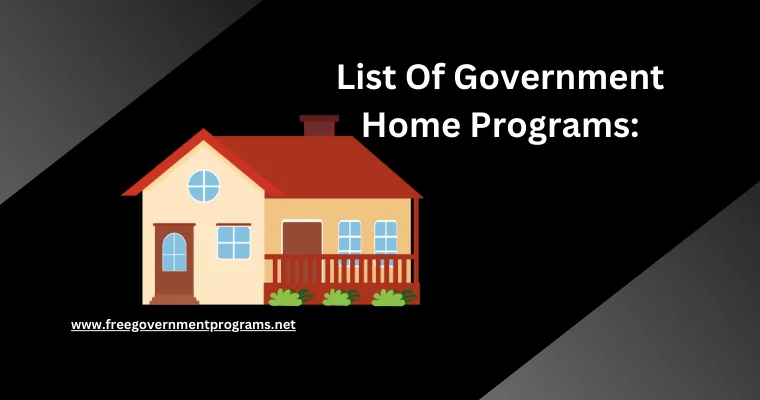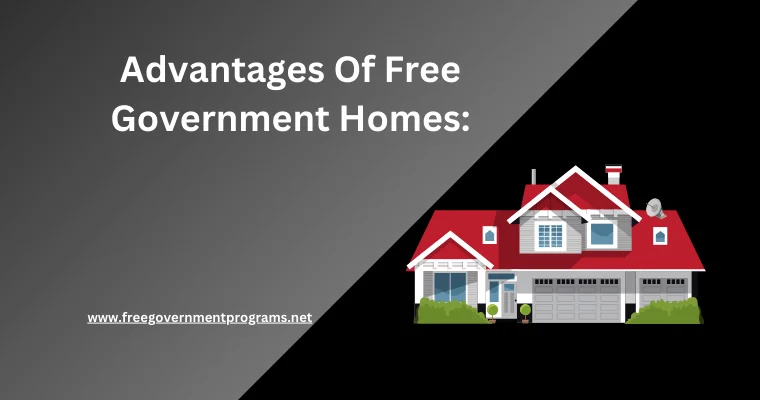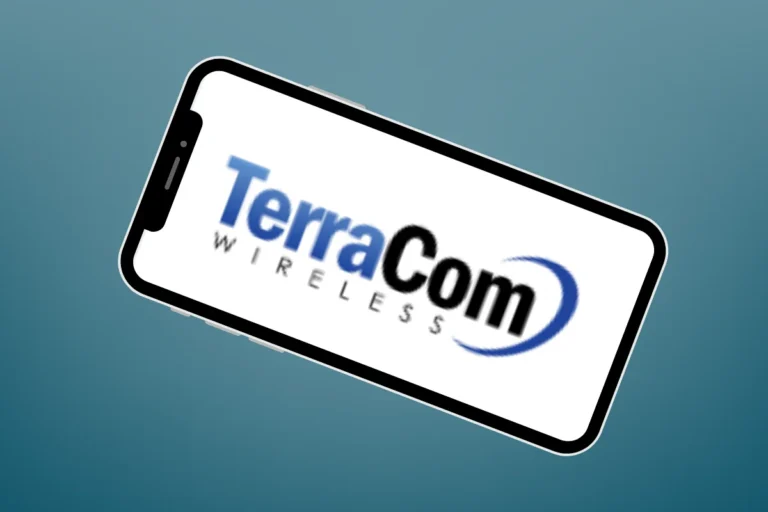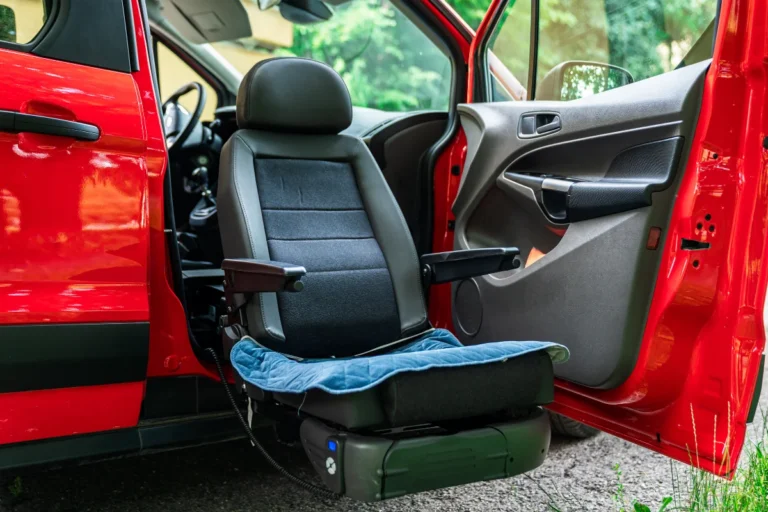Free Home From Government – Is It Possible? Find Out Here
Are you dreaming of a free home from government? Getting a home can be costly, but there are ways to get one for free or almost free. You can do this by buying a home through auctions, government programs, or using rental income. The USA is a place with lots of chances, and one special thing that shows this is giving away homes for free by the government. However, it might sound unbelievable, but real programs are trying to help people and families get homes they can afford. Owning a home through government programs often means paying less or nothing for the mortgage.

It can really help families by easing their money worries. It lets them use their money for other important things like education, healthcare, and saving up. In this article, we’ll look at the different ways you can get a free government home in the USA. We will also discuss the eligibility criteria and application process for a free home from the government.
List Of Government Programs:
1. HUD Homes:
HUD, which is short for the U.S. Department of Housing and Urban Development, helps many Americans become homeowners. HUD homes are houses that were originally purchased with insured mortgages from the Federal Housing Administration (FHA) but later became foreclosed. These homes are then sold to the public at lower prices, and sometimes, special programs offer them for free to eligible individuals.
However, to get a HUD home, you can check the HUD website or contact a local real estate broker approved by HUD. Just remember, the rules to qualify and the application process can vary, so it’s important to do thorough research. Additionally, the U.S. Department of Housing and Urban
Development (HUD) has programs for people who qualify. These include:
- Good Neighbor Next Door Sales Program:
This program is for law enforcement officers, teachers, firefighters, and emergency medical technicians. Furthermore, if you qualify, HUD gives a 50% discount on the house’s price if you promise to live there for 36 months.
- Public Housing Authority (PHA):
Local Public Housing Authorities offer public housing units to low-income families. They can also use Capital Funds to help with homeownership, such as giving money for closing costs, down payments, and mortgage loans to people in public housing.
- Federal Housing Administration (FHA):
FHA, part of HUD, helps by insuring loans. It allows lenders to offer benefits to buyers, like low down payments and reduced closing costs.
2. Homesteading Programs:
In the USA, some states have homesteading programs. These programs give away free land or properties to people who are ready to build, improve, or live there. The goal is to make communities better, help the economy grow, and offer affordable homes.
To join a homesteading program, you usually need to follow some rules. It might include living on the property for a certain time and showing you can make it better. Every state has its own rules, so it’s a good idea to do some research and talk to the people in charge of the program in your state to get all the details.
3. Low-Income Housing Programs:
The government, along with state and local housing authorities, has programs to help people with low income find affordable homes. These programs can also help with paying rent, offer housing at lower costs, and even give chances to buy homes at reduced prices.
One well-known program is Section 8, which gives rental help to families with low income. Some programs also assist with the money needed to buy a home, making it easier for people to become homeowners.
4. Community Land Trusts:
The government, along with state and local housing authorities, has programs to help people with low income find affordable homes. These programs can help with paying rent, offer housing at lower costs, and even give chances to buy homes at reduced prices.
List of Other Programs:
5. Bridge Housing
The Bridge Transitional Housing program, in collaboration with Chrysalis, offers free temporary housing for up to 90 days to people who have jobs and a “Section 8” housing voucher and need a temporary place to stay. Moreover, the program has 35 beds for adult men and women and provides meals, showers, and supportive services.
Currently, there are very few empty apartments (2.7% vacancy rate), and rent is high, making it hard to find permanent housing for qualified individuals. However, people with a “Section 8” voucher often have to wait months for an available apartment.
The aim is to give temporary housing for up to 90 days to employed men and women who are homeless but have a voucher for permanent housing. This time allows them to save money needed for when they move into their permanent homes.
Last year, the program provided 708 stays, offering a safe living environment and reducing the number of crime victims. Participants were better prepared for permanent housing, saving more money, and gaining independent living skills. The program also helped establish a reliable referral system and build more partnerships within the local community.
6. Affordable Housing & Property Rights:
In New Hampshire, not many homes are available for rent, and the cost of living in houses is very high. It makes it hard to find affordable homes, and it’s a big issue for bringing in new workers to cities and towns where businesses are. It also affects people who don’t have a place to live. However, fixing this problem is tough and needs the effort of lawmakers and local zoning boards.
Should NH institute a “housing champion certification program” to incentivize municipalities to develop workforce housing? One big issue in New Hampshire that affects a lot of people is the lack of housing. Whether you rent a home or own one, the limited availability of housing in New Hampshire is likely affecting your money directly or indirectly. As the cost of housing goes up, there’s a bigger need for homes that working people can afford. This year, the Legislature looked at a big law called SB 400 to try to fix this problem.
The Governor, Gov. Sununu, supported this law, and it had many programs and rewards to increase the number of homes for working people. Unfortunately, the House put aside the law on May 5, so it probably won’t become a law this year. However, some of the ideas in SB 400 have been talked about in the past and might still be considered in future talks. In this article, we’ll look at one part of SB 400 that caused a lot of discussion: the “Housing Champion Certification Program.”
What is The Housing Champion Certification Program?
The Housing Champion Certification Program, described in SB 400, is a plan to encourage towns and cities in New Hampshire to support the building of homes for working people and “other types of housing needed for the state’s economic growth.” If a town or city gets certified, it means they would get special access to state resources, including funds for state infrastructure, before others.
The Office of Planning and Development would decide the exact rules for a town or city to earn the New Hampshire Housing Champion certification, but the bill gives some general ideas. However, to get certified, towns and cities would have to make rules that help build homes for working people. SB 400 says this includes making rules about land use, creating zones for economic development, setting standards for energy-efficient homes, training local officials, and more.
The law would also create a special group to oversee the program and check and approve any rule changes. This group would include lawmakers and people from the community. The certification would be valid for three years, and towns and cities could renew it every three years.
Options For Municipalities
Supporters of the Housing Champion Certification Program believe it’s important to encourage towns to do things that will create more homes. A report from NH Housing says that New Hampshire is currently short about 20,000 homes across the state.
Therefore, this shortage of homes makes it hard to find enough workers in New Hampshire. But, towns often hesitate to build more homes for workers because they worry about the impact on water and sewer systems, safety services, and schools. If a town is certified as a Housing Champion, it could get money to improve its systems so it can handle more homes.
Those in favor of this program also want to highlight that it’s completely optional. Not every town in New Hampshire has to take part; this certification is meant to help state resources go to the towns that need it and want to use it.
Questions and Concerns
However, some people think this idea might not be good for New Hampshire. Many believe that the way the law is written doesn’t give enough details about how the program would work. For example, the bill says that “the procedure for a municipality to earn the New Hampshire housing champion certification shall be based on a scoring system,” but it doesn’t explain what this scoring system would be like, how many points there would be, or how they would be given. It means that the way of scoring would be decided by people at the Office of Planning and Development who are not elected.
There are also worries that the group overseeing the program gives too much say to special interest groups and developers. Some people against this idea are afraid that this could lead to unfair sharing of state money or secret deals. Others argue that towns that have already put effort into these important things should also be considered.
A High Priority
In February, Governor Sununu talked about SB 400 in his State of the State speech. The bill includes the Housing Champion Certification Program and changes to speed up approvals for new housing projects by planning boards. However, the bill is facing challenges in the Legislation. Some lawmakers see this as a chance to add conservative policies because the governor wants the bill to pass.
Many representatives also don’t like the Housing Champion Certification Program and voted to remove it from the bill. Now that the House decided to put the bill aside, it’s unlikely to become law. Still, there could be unexpected talks at the end of the legislative session, and some parts of SB 400 might be added to other bills. If not, we might see similar policies reintroduced next year.
Should NH Require Towns To Allow Tiny Houses?
The New Hampshire House is thinking about a law that would make towns allow “tiny houses” next to regular houses. People who like this idea imagine a future where fans of tiny houses come to New Hampshire, helping our workforce. But, some people don’t like it because they worry it might take away local control and lower property values.
What Is a Tiny House?
A tiny house is usually a small home that’s 100 to 400 square feet. It can be on the ground or on wheels like a trailer. Some have everything like a regular house with a kitchen and plumbing, while others are made to be off-grid with composting toilets. However, people like tiny houses because they are affordable and good for the environment, and they’ve become more popular in the last ten years.
But, many places have rules saying houses must be a certain size. Tiny houses on wheels might be seen as RVs and not fit for living all year round. In 2016, New Hampshire made a law letting towns allow small extra homes next to regular houses, but not every town decided to do it. Towns can also decide how big these extra homes need to be.
Brianna O’Brien from Hampton Falls, New Hampshire, wanted to live in a tiny house on her parents’ land. But the town said no because the tiny house didn’t meet their rules. She had to give up on the tiny house.
A Proposal To Welcome Tiny Houses
This year, three representatives in New Hampshire two Republicans and a Democrat are supporting a bill to welcome tiny houses to the state. The bill, HB 588, would make towns let people have “tiny houses” anywhere they can have regular houses.
If a town already allows small extra homes, the bill says they should allow tiny houses in the same way. The bill also has rules for tiny houses. For example, they need to follow fire safety rules. If a tiny house is on wheels, the trailer it’s on must be licensed, registered, and checked.
Lastly, the bill says towns and cities should make rules for places with lots of tiny houses, called “tiny house parks,” where at least four tiny houses are together. HB 588 is similar to a bill from 2020, SB 482, but that one didn’t become a law because of the coronavirus shutdown. However, there’s no date yet for the House public hearing on HB 588.
Use Rental Income
Many investors buy a property by getting a loan (mortgage) and then rent it out by charging a fair rent. This rent is enough to cover the monthly loan payments. If they have reliable tenants who stay for a long time, the rent they pay can cover the whole loan.
Some people buy properties to rent them on Airbnb. It can give a steady income over time. Airbnb rentals are usually short-term. In 2022, the average daily rate for an Airbnb in Los Angeles was about $190, and these places usually occupied 67% of the year, as per AirDNA.
Auctions and Tax Sales
Homes might go to auction if the owner doesn’t follow their mortgage agreement, can’t pay their mortgage, or doesn’t pay property taxes. If someone can’t pay their mortgage for a while, the lender takes over the house. If property taxes aren’t paid, the local tax authority might take the property. Auctions, where people bid to buy the house, can happen in person or online. There are three types of auctions:
- Absolute Auction:
The house goes to the person who bids the most, no matter how much they bid.
- Minimum Bid:
You just have to bid at least a certain amount to buy the property.
- Reserve Auction:
Bids are like offers, and the owner can say no if they don’t like the bids.
Where Can I Find Houses Selling At Auction?
Local real estate agents and banks might have lists of homes that lenders took back, and they can tell you when auctions will happen. If you subscribe to Auction.com, you can get daily updates about homes that are available.
Eligibility Criteria For Free Government House:
Financial Need:
Most government housing programs prioritize individuals and families with limited financial resources. In addition, eligibility often depends on income levels, with specific thresholds established to determine eligibility.
Citizenship and Residency:
Applicants typically need to be U.S. citizens or legal residents to qualify for free government homes. Some programs may have additional requirements related to residency and the duration of legal status.
Vulnerable Groups:
Certain government housing initiatives give priority to vulnerable populations such as veterans, seniors, people with disabilities, or those experiencing homelessness. Specialized programs cater to the unique needs of these groups.
Participation In HUD Programs:
In some cases, eligibility for free government homes is linked to participation in specific HUD programs, like the Good Neighbor Next Door Sales Program, which benefits law enforcement officers, teachers, firefighters, and emergency medical technicians.
Application Process For Free Government House:
Research and Documentation:
If you’re thinking about applying, first find out about government housing programs and who can qualify. Get your important documents ready, like proof of income, proof of citizenship or legal residency, and any other documents the program asks for.
Contact Local Housing Authorities:
Local housing authorities play a crucial role in the application process. Individuals interested in free government homes should reach out to their local housing authorities to inquire about available programs, eligibility requirements, and the application process.
Visit The HUD Website:
The U.S. Department of Housing and Urban Development (HUD) website is a valuable resource for information on various housing programs. It also provides details on eligibility criteria, application procedures, and contact information for local HUD offices.
HUD-Approved Real Estate Brokers:
Some programs, like the HUD Home Sales Program, involve the sale of foreclosed homes at discounted prices. Interested individuals can contact HUD-approved real estate brokers for assistance in navigating the purchasing process.
Patience and Persistence:
The application process for free government homes may take time, and competition can be high. However, it is essential to be patient, persistent, and diligent in following up on the application status.
Advantages Of Free Government Homes:
Many people and families dream of having their own home, which is a big achievement. Luckily, government programs that give homes for free can help make this dream come true for those who qualify. Here, we’ll look at the benefits of getting free homes from the government and how these programs help build strong and lasting communities.

Affordability and Accessibility:
One of the primary advantages of free government homes is the affordability they offer. These programs are designed to assist individuals and families with limited financial means. They also make homeownership accessible to those who might otherwise struggle to afford a home in the traditional market.
Community Revitalization:
Free government home programs often focus on revitalizing communities that may be facing economic challenges or housing crises. By offering homes at no cost or reduced prices, these initiatives contribute to the renewal of neighborhoods, fostering a sense of pride and stability.
Support For Vulnerable Populations:
Lots of government housing programs give special attention to people who might be in a tough spot, like veterans, seniors, those with disabilities, and people who don’t have a home. Giving free homes to these groups doesn’t just help with their housing right away; it also makes sure everyone is treated fairly and included in society.
Economic Stimulus:
Giving away free government homes helps the economy in different ways. It boosts local businesses because more people need things like construction materials and home improvement services. Also, when people own homes, they tend to invest in their communities, which makes the local economy stronger and more stable.
Neighborhood Stability:
Stable housing situations contribute to neighborhood stability. When residents own their homes, they are more likely to invest in maintaining and improving their properties and community engagement. In this way, this stability has a positive ripple effect, enhancing the overall quality of life in the neighborhood.
Educational Opportunities:
Homeownership through government programs can positively impact educational opportunities for families. Stable housing often translates to children attending the same school consistently and providing a sense of continuity for students.
Conclusion:
Getting a free home from the government might sound surprising, but there are real programs in the USA that aim to help people afford homes. These programs include HUD homes, homesteading, low-income housing, and community land trusts. These programs are determined to provide free homes because owning a home acquired can offer long-term financial security.
As homeowners build equity, they gain a valuable asset that can contribute to financial stability and provide a foundation for future investments. However, if you meet the criteria and are ready to go through the application process, you can explore these opportunities. Research these options, talk to the right people, and take action to make your dream of owning a home a reality.
Frequently Asked Questions (FAQs):
How can I qualify for a free government home?
Eligibility criteria vary by program but often include factors such as income levels, citizenship or legal residency, and, in some cases, participation in specific government programs. However, contacting local housing authorities or visiting the official HUD website can provide detailed information on eligibility requirements.
Are free government homes totally free?
While some government programs offer homes at no cost, others may involve reduced prices or financial assistance for eligible individuals. However, it’s essential to understand the specific terms of each program and whether there are any associated costs.
What types of government programs offer free homes?
Programs such as the Good Neighbor Next Door Sales Program, HUD Home Sales Program, and homesteading initiatives are examples of government-sponsored programs that provide opportunities for obtaining homes at reduced or no cost.
Can I choose the location of the free government home?
The availability of homes and the choice of location may depend on the specific program. Some programs focus on revitalizing targeted communities, while others may provide more flexibility in choosing the location.
How Do I Contact HUD for Assistance?
HUD.gov provides help for people who want to buy a home or own a home. There are also other programs supported by state or local governments that can assist you.
How Can I Get a House I Can’t Afford?
You have different ways to get help in buying a house. You can also apply for programs that assist homebuyers, consider a rent-to-own choice, or explore different kinds of loans.





